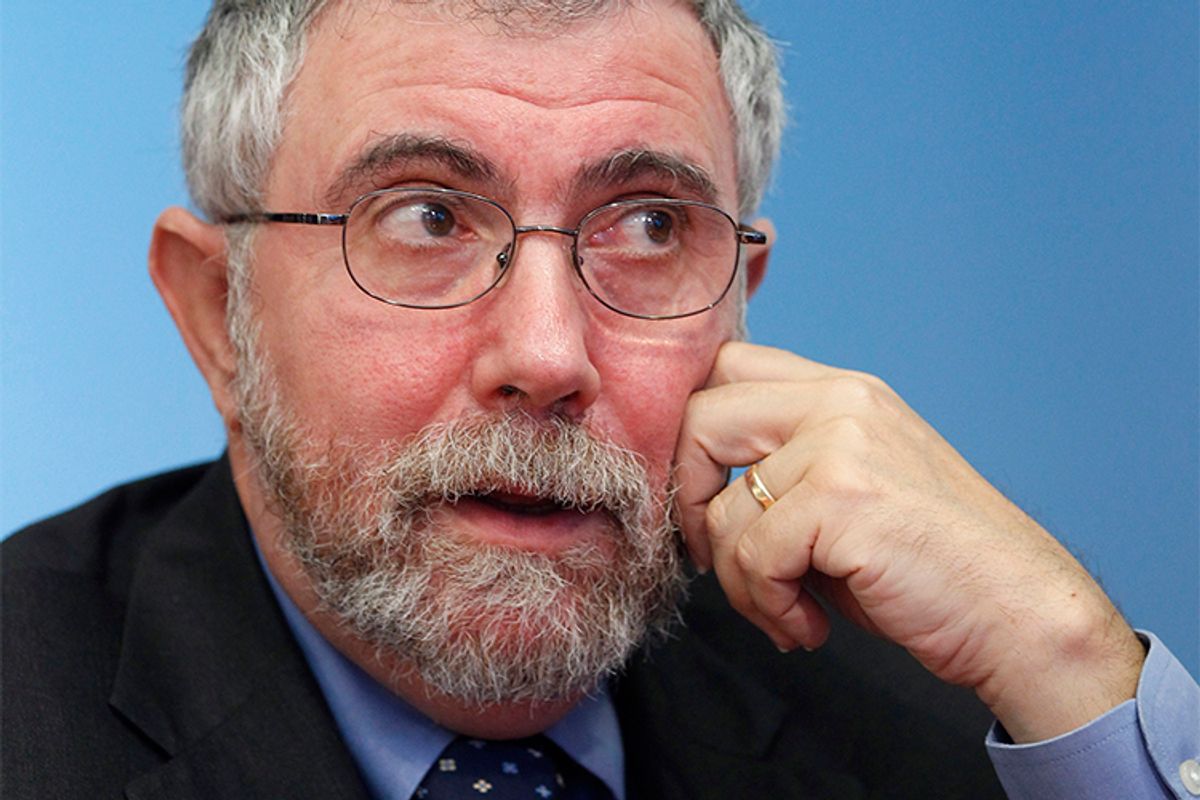In his column for the New York Times, award-winning economist Paul Krugman asks readers and policymakers to imagine a world in which depression-like economic conditions are the new normal. "But what if the world we’ve been living in for the past five years is the new normal?" Krugman writes. "What if depression-like conditions are on track to persist, not for another year or two, but for decades?"
If that's the case, then those with their hands on the economy's wheel are going to have to readjust their worldview, Krugman says. "[C]entral bankers need to stop talking about 'exit strategies.' Easy money should, and probably will, be with us for a very long time," Krugman writes.
As a result, deficit hawks will have to wait a long, long while before their warnings about federal debt hold any real value. "[W]e can forget all those scare stories about government debt, which run along the lines of 'It may not be a problem now, but just wait until interest rates rise,'" Krugman writes.
More from Krugman at the New York Times:
More broadly, if our economy has a persistent tendency toward depression, we’re going to be living under the looking-glass rules of depression economics — in which virtue is vice and prudence is folly, in which attempts to save more (including attempts to reduce budget deficits) make everyone worse off — for a long time.
I know that many people just hate this kind of talk. It offends their sense of rightness, indeed their sense of morality. Economics is supposed to be about making hard choices (at other people’s expense, naturally). It’s not supposed to be about persuading people to spend more.
But as Mr. [Larry] Summers said, the crisis “is not over until it is over” — and economic reality is what it is. And what that reality appears to be right now is one in which depression rules will apply for a very long time.



Shares